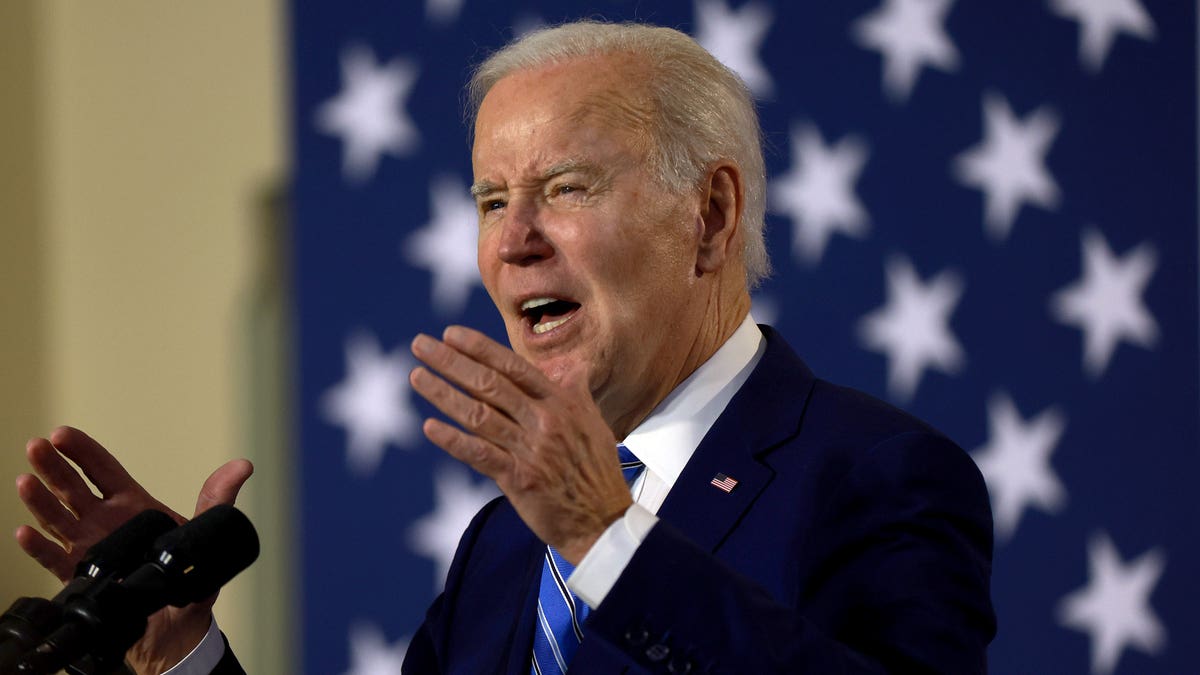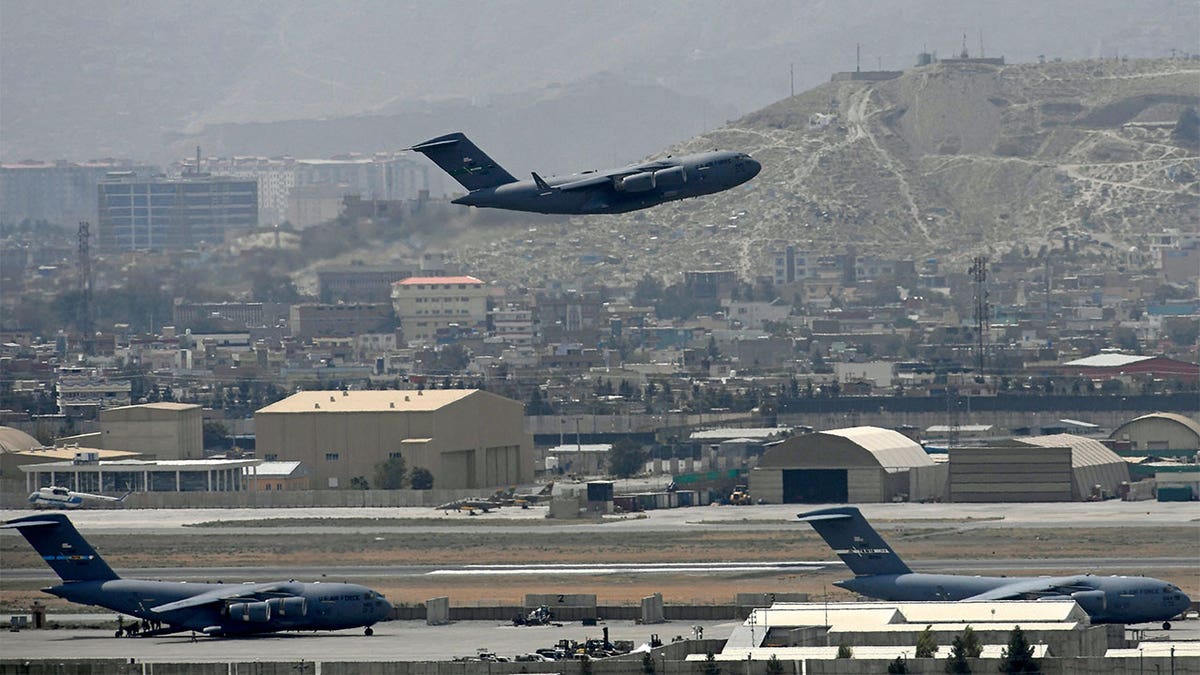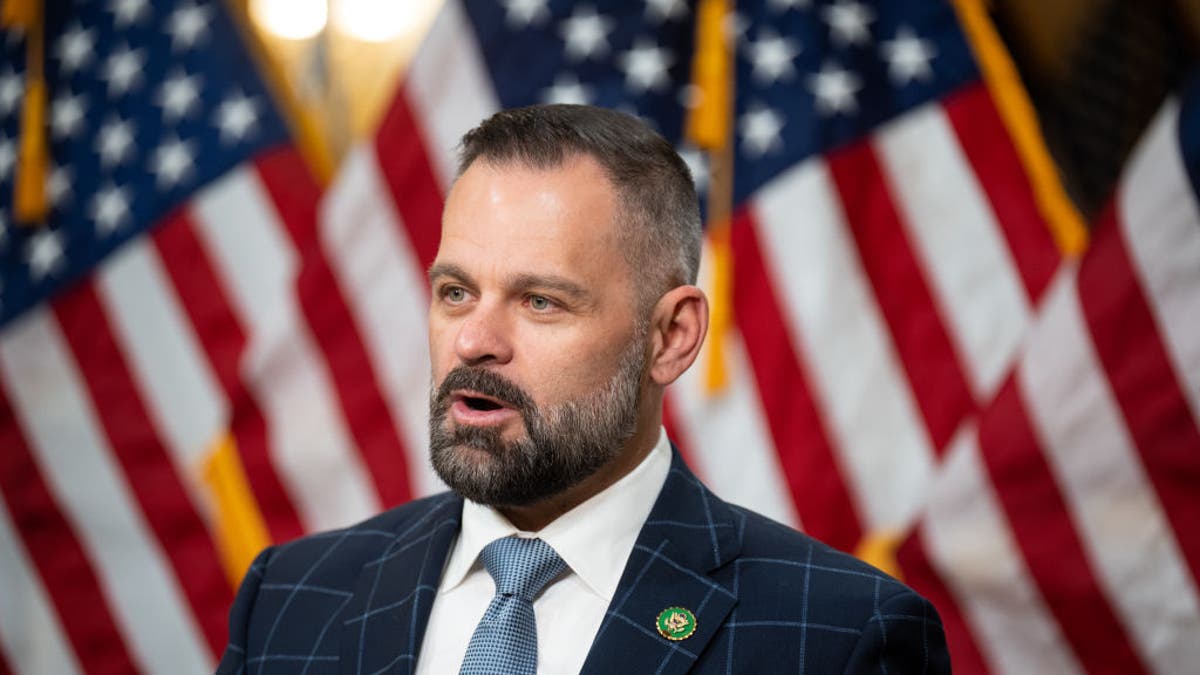Cory Mills: Need for ‘accountability and transparency’ at upcoming House Afghanistan hearing
Rep. Cory Mills, R-Fla., on upcoming House hearings on the 2021 Afghanistan withdrawal and the need to defend America’s borders
Rep. Cory Mills took aim at President Biden for his handling of the U.S. withdrawal from Afghanistan – arguing the president placed "political optics" over military strategy in the chaotic final months of America's longest war.
"Biden's administration originally said they'd be out by Sept. 11, trying to utilize this date for political optics above military strategy," Mills, R-Fla., told Fox News Digital Tuesday.
Mills' comments come as the House Foreign Relations Committee is scheduled to hold its first hearing Wednesday on America's final days in Afghanistan, which Mills said will be aimed at providing the "transparency and accountability the American people deserve."
Mills, a veteran of the Army's 82nd Airborne Division who spent seven years in Iraq and nearly three years in Afghanistan, became personally involved in the withdrawal mission. Despite running a congressional campaign at the time, Mills assembled a team to help him evacuate an American mother from Texas and her three children who were stranded in Afghanistan.
HOW SIGNIFICANT IS RESISTANCE TO THE TALIBAN IN AFGHANISTAN?

Cory Mills and members of the team he helped assemble to evacuate an American family from Afghanistan. (Rep. Cory Mills)
"I assembled a team, which came to my facility in Perry, Florida, former special operations guys who understood this type of extraction," Mills said. "We did a bit of training… made sure we had all the necessary kit and gear and approvals, got the aircraft we were utilizing."
But when the team Mills assembled attempted to land in Afghanistan for the extraction, they were denied the ability to use the runway they had previously been approved for. Subsequent attempts to land were also denied, with American leaders on the ground threatening to arrest the passengers if they landed and revoke the license of the pilot.
The setback forced them to try a new strategy, with Mills saying he and an interpreter entered Afghanistan by land from Tajikistan. From there, they scouted out a route to get the American family out of the country overland, he said. The team linked up with the American family and led them on a 13-hour journey under the cover of darkness and early morning, eventually slipping the mother and her children across the border, he said.
They duped a Taliban guard by convincing him that the woman was his wife and the children were his, Mills added. The congressman said such extraordinary measures would not have been necessary if the withdrawal from Afghanistan were better planned, pointing to the closure of Bagram Air Base as an example of failed leadership.

Cory Mills with the American family evacuated from Afghanistan during the chaotic U.S. withdrawal. (Rep. Cory Mills)
"I think we have to recognize the fact that shutting down Bagram Air Base was a strategic failure," Mills said. "We could have run two runways simultaneously, utilizing military and government evacuation at Bagram but also helping to utilize commercial flights in and out that already had tickets booked and planes willing to come in."
Mills also pointed to the release of thousands of "known terrorists" from Bagram Detention Center, arguing the decision led to the deadly Aug. 26 attack on American forces at an airport gate in Kabul, killing 13 U.S. service members.
"I think the critical failure was always the idea of putting politics and optics above strategy, that the real intent wasn't just to try and save all the Americans or allies who we've made promises to over the past two plus decades," Mills said. The administration quickly began boasting about "the most successful airlift operation" in U.S. history but left many Americans and allies behind while "60 to 70%" of those evacuated from Kabul were "never vetted," Mills said.

Cory Mills during his time in the U.S. Army. (Rep. Cory Mills)
Worse yet, Mills argued, the chaotic failure of the final days of America's longest war could have been avoided had the administration stuck to the terms of the deal bargained with the Taliban under the Trump administration. He noted that former Secretary of State Mike Pompeo had set conditions for what the Taliban had to do in order for American forces to leave, and those obligations were not being met. Despite that, Biden broadcast the U.S. timeline withdrawal to the Taliban.
"I think we made some critical and fatal flaws, not to mention the fact that one of the grand flaws in my opinion is that you left 80-plus billion dollars in weapons and armor, defense articles, and millions of dollars and pallets of cash," Mills said.
Mills argued the blame for the failure falls on Biden, who as commander in chief had the final say in all decisions made.

President Joe Biden (Joe Raedle/Getty Images)
"At the end of the day, we have to acknowledge the fact that if you're an actual leader, especially if you're the commander in chief, that all the faults that go on ultimately fall on you," Mills said. "He has an obligation to the American people and our armed forces to try and ensure that the strategy that we utilize keeps them as safe as possible. Whether it is failures by Secretary Austin to carry out what the Biden administration had put forth or failures by Secretary Blinken to carry out Biden's intent, it ultimately falls on President Biden as a leader."
Mills said the repercussions of the disastrous final days of America's war in Afghanistan will also likely have a profound effect on U.S. power and credibility going forward.
TIM KENNEDY LOOKS BACK ON BOTCHED AFGHANISTAN WITHDRAWAL: 'FIRST TIME YOU SAW SUPERMAN BLEED'

A US Air Force aircraft takes off from the airport in Kabul on Aug. 30, 2021. (Aamir Qureshi/AFP via Getty Images)
"This botched withdrawal ultimately led to our adversaries coming more aggressive toward us because they looked at this as a massive failure on a world stage level, and we know that weakness invites aggression," Mills argued.
Mills pointed out that not only will Afghanistan be allowed to become a safe haven for terrorism once again, but also that the ramifications are already being felt when it comes to dealing with other geopolitical foes such as China and Russia.
"Now you've got the China, Russia, Iran, North Korean geopolitical alignment where they have seen and smelled weakness, they feel emboldened in their approach, which I feel is what encouraged Russia to be able to go in 2014 and annex Crimea… then again when Biden came back into the executive office they went into a further invasion."
Mills added that how the situation is handled in Ukraine will likely determine China's next steps in Taiwan and its ambitions for expanded influence elsewhere in Asia and across the globe, which could "choke off the Western Hemisphere's supply chain."

Rep. Cory Mills (Bill Clark/CQ-Roll Call, Inc via Getty Images)
CLICK HERE TO GET THE FOX NEWS APP
"There's truly a lot that has come out of this that has essentially damaged our credibility on the world stage and makes many of our allies and others look at us and whether we're truly a world leader any longer," Mills said.
Mills argued that hearings beginning this week, taking place after the Republican takeover of Congress this year, are an opportunity to examine the critical questions surrounding the failures in Afghanistan while giving the American people answers on what went wrong in the war's final days.
"I think these 13 Gold Star families deserve to know who was responsible for the loss of life. I think that the Americans who are left behind to perish without our own U.S. government's obligated duties to provide safety and security to them need to have transparency," Mills said. "We need to know where the decisions were being made, whether it was ignoring military strategy by the president. Whether it was failed strategies by both the DOD and the Department of State, whether it was not being properly carried out by the ground commanders… we get the necessary information to be able to take further steps and lessons learned."
